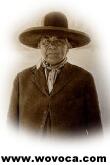|
||||||||||||||||||
Press CTRL+D to bookmark this page! |
||||||||||||||||||
 |
||||||||||||||||||
| Click here for
EarthMotherCrying Wallpaper |
||||||||||||||||||
LDS (Mormon) Prophecy - Reasons for Preparedness |
||||||||||||||||||
|
||||||||||||||||||
|
||||||||||||||||||
|
|
||||||||||||||||||
|
||||||||||||||||||
|
||||||||||||||||||
(Apostle, 1963; Second counselor to President Ezra Taft Benson, 1985, Second counselor to President Howard W. Hunter 1993, First Counselor to President Gordon B. Hinckley, 1995) "Ensign," September 1986
Faithful compliance with these revealed welfare principles and practices have preserved lives in times of crises. An example is found in the response of Church members to the 1985 earthquake that devastated parts of Mexico City. Church members and leaders rose to the occasion, drawing on their own preparedness efforts to help themselves and others around them. Another example occured at the time of the Idaho Teton Dam disaster in the summer of 1976, when thousands of Latter-day Saints gave of their own reserves to those whose every belonging was swept away in the floodwaters. We remember also the massive efforts of Church members following World War II when our own prophet-leader, President Benson, then a member of the Council of the Twelve, administered the distribution of more than seventy-five train-carloads of commodities to needy members in war-ravaged Europe. These outpourings of humanitarian service were made possible by the faithful adherence of Church members to the very principles we have just reviewed. ...President Spencer W. Kimball further taught concerning self-reliance: "The responsibility for each person's social, emotional, spiritual, physical, or economic well-being rests first upon himself, second upon his family, and third upon the Church if he is a faithful member thereof. ...Perhaps no counsel has been repeated more often than how to _manage wisely our income._ Consumer debt in some nations of the world is at staggering levels. Too many in the Church have failed to avoid unnecessary debt. They have little, if any, financial reserve. The solution is to budget, to live within our means, and to save some for the future. ...Recent surveys of Church members have shown a serious erosion in the number of families who have _a year's supply_ of life's necessities. Most members plan to do it. Too few have begun. We must sense again the spirit of the persistent instruction given by Elder Harold B. Lee as he spoke to the members in 1943: "Again there came counsel in 1942....'We renew our counsel, said the leaders of the Church, and repeat our instruction: Let every Latter-day Saint that has land, produce some valuable essential foodstuff thereon and then preserve it'...Let me ask you leaders who are here today: In 1937 did you store in your own basements and in your own private storehouses and granaries sufficient for a year's supply? You city dwellers, did you in 1942 heed what was said from this stand?" (In Conference Report, April 1943, p.127.) ...Undergirding this pointed call is the stirring appeal from our own living prophet, President Ezra Taft Benson, wherein he has given specific suggestions for putting these teachings into action: "From the standpoint of food production, storage, handling, and the Lord's counsel, wheat should have a high priority....Water, of course, is essential. Other basics could include honey or sugar, legumes, milk products or substitutes, and salt or its equivalent. The revelation to produce and store food may be as essential to our temporal welfare today as boarding the ark was to the people in the days of Noah." (Ensign, Nov., 1980, p.33.) As has been said so often, the best storehouse system that the Church could devise would be for every family to store a year's supply of needed food, clothing, and, where possible, the other necessities of life. In the early church, Paul wrote to Timothy, "If any provide not for his own, and specially for those of his own house, he hath denied the faith, and is worse than an infidel." (1 Tim. 5:8.) It is our sacred duty to _care for our families, including our extended families._
Ezra Taft Benson October Conference, 1987
Fathers, another vital aspect of providing for the material needs of your family is the provision you should be making for your family in case of an emergency. Family preparedness has been a long-established welfare principle. It is even more urgent today. I ask you earnestly, have you provided for your family a year's supply of food, clothing, and, where possible, fuel? The revelation to produce and store food may be as essential to our temporal welfare today as boarding the ark was to the people in the days of Noah. ...Yes, brethren, as fathers in Israel you have a great responsibility to provide for the material needs of your family and to have the necessary provisions in case of emergency.
Ezra Taft Benson April Conference, 1988
And what about family preparedness? Family preparedness has always been an essential welfare principle in perfecting the Saints. Are each if us and our families following, where permitted, the long-standing counsel to have sufficient food, clothing, and where possible, fuel on hand to last at least one year?
Encyclopedia of Mormonism, Vol.1, CONSTITUTION OF THE UNITED STATES OF AMERICA
While LDS scripture reinforces the traditional Christian duty of "respect and deference" to civil laws and governments in general as stem "instituted of God for the benefit of man" (D&C 134:1, 6), Latter-day Saints attach special significance to the Constitution of the United States of America. They believe that the Lord "established the Constitution of this land, by the hands of wise men whom [he] raised up unto this very purpose" (D&C 101:80). The Prophet Joseph Smith once described himself as "the greatest advocate of the Constitution of the United States there is on the earth" (Hc 6:56-57). All of his successors as President of the Church have reaffirmed the doctrine of an inspired Constitution. This consistent endorsement is notable, for basic LDS teachings are far removed from the premises of American liberalism, and largely as a result of these differences, Latter-day Saints suffered considerable persecution before achieving an accommodation with mainstream America. The idea of an inspired Constitution is rare in contemporary public discourse and wholly absent from contemporary constitutional and historical scholarship. Seeking to discern the hand of divinity in America's beginnings, however, was once common not only in popular rhetoric but also among eminent nineteenth-century historians such as George Bancroft. Perhaps even more important is the repeated acknowledgment of divine aid by America's founding fathers. Notably, George Washington frequently expressed gratitude to God for felicitous circumstances surrounding the rise of the United States and chose the occasion of his first inaugural address to recognize the providential character of the framing of the Constitution: No people can be bound to acknowledge and adore the invisible hand which conducts the affairs of men, more than the People of the United States. Every step by which they have advanced to the character of an independent nation seems to have been distinguished by some token of providential agency. And in the important revolution just accomplished in the system of their united government, the tranquil deliberations and voluntary consent of so many distinct communities, from which the event has resulted, cannot be compared with the means by which most governments have been established, without some return of pious gratitude, along with an humble anticipation of the future blessings which the past [blessings] seem to presage [W. Allen, ed., George Washington: A Collection, p. 461. Indianapolis, Ind., 1988]. LDS teaching and revelation are in harmony with this self-understanding of the founding generation. Latter-day Saints believe that the Lord established the Constitution, not by communicating specific measures through oracles, but by raising up and inspiring wise men to this purpose (see D&C 101:80). This emphasis on the extraordinary character of the American founders--and perhaps, more generally, on the founding generation as a whole--accords with assessments by contemporaries, as well as by later students of the period. Thomas Jefferson, then U.S. ambassador to France, described the Constitutional Convention of 1787 as "an assembly of demigods." More than forty years later, Alexis de Tocqueville, the noted French observer of American society, included the American people as a whole in his praise of the founding: That which is new in the history of societies is to see a great people, warned by its lawgivers that the wheels of government are stopping, turn its attention on itself without haste or fear, sound the depth of the ill, and then wait for two years to find the remedy at leisure, and then finally, when the remedy has been indicated, submit to it voluntarily without its costing humanity a single tear or drop of blood [Vol. 1, p. 113]. This understanding of the divine inspiration of the Constitution as mediated through the human wisdom of the founders and the founding generation invites the inference that new needs and circumstances might require the continued exercise of inspired human wisdom by statesmen and citizens alike. LDS leaders have taught that the Constitution is not to be considered perfect and complete in every detail (as evidenced most clearly by its accommodation with slavery, contrary to modern scripture; e.g., D&C 101:79) but as subject to development and adaptation. It was part of the wisdom of the founders to forbear from attempting to decide too much; they therefore provided constitutional means for constitutional amendment. President Brigham Young explained that the Constitution "is a progressive--a gradual work"; the founders "laid the foundation, and it was for after generations to rear the superstructure upon it" (JD 7:13-15). If the wisdom embodied in the Constitution is considered open to future development, so must it be understood as rooted in the past. J. Reuben Clark, Jr., perhaps the most thorough expositor of the Constitution among past LDS Church leaders, emphasized the dependence of the founders' wisdom on "the wisdom of the long generations that had gone before and which had been transmitted to them through tradition and the pages of history" (1962, p. 3). He saw the Constitution as the product of Englishmen's centuries-long struggle for self-government. This historical perspective fits well with the account of the Book of Mormon, according to which the Lord guided the discovery, colonization, and struggle for independence of America (1 Ne. 13:12-13), in order to establish it as a "land of liberty" (2 Ne. 10:11). Latter-day Saint teaching differs from the traditional providential view of the founding chiefly in holding this liberty not only a blessing in itself but also a condition for the restoration of the fulness of the gospel of Jesus Christ. LDS teaching about the wisdom of the founders readily acknowledges that it was both conditioned by the past and open to the future. But there can be no question of completely reducing the Constitution to its historical conditions. If the document framed in 1787 remains a touchstone today, this is because, in some admittedly imperfect way, it aims at "the rights and protection of all flesh, according to just and holy principles" (D&C 101:77). Church President David O. McKay affirmed that "there are some fundamental principles of this republic which, like eternal truths, never get out of date. . . . Such are the underlying principles of the Constitution" (p. 319). The scriptural reference to "just and holy principles" appears to locate these fundamentals in certain "rights." Section 98 of the Doctrine and Covenants recommends friendship to constitutional law based on the harmony between freedom under its law and freedom under God (D&C 98:6, 8). Similarly, revelation links human "rights" with the opportunity to "act in doctrine and principle pertaining to futurity, according to the moral agency which I have given unto him, that every man may be accountable for his own sins in the day of judgment" (D&C 101:78). In this way, the reverence of Latter-day Saints for the Constitution is anchored in the fundamental doctrine of free agency, or the idea that God makes possible people's progress toward eternal life in part by exposing them to the consequences, good or bad, of their choices. LDS scholars who have examined the Constitution from the standpoint of this fundamental interest in moral freedom have exhibited its connection with the basic principles of the rule of law (Reynolds, Hillam) and of the separation of powers (Hickman, in Hillam), both of which concepts are connected with the ideal of limited government. If "moral agency" stands at the core of the doctrine of an inspired Constitution, then one might say that whereas LDS teaching in the nineteenth century emphasized the agency, Church leaders in the twentieth century have increasingly stressed the moral foundations of the Constitution, echoing the prophet Mosiah2 in the Book of Mormon: "If the time comes that the voice of the people doth choose iniquity, then is the time that the judgments of God will come upon you" (Mosiah 29:26-7; cf. Ether 2:8-12). Their praise of the Constitution has often been paired with warnings against the evils of Marxist communism, a system opposed to the Constitution and moral freedom. LDS attachment to the Constitution has been further encouraged by an important oral tradition deriving from a statement attributed to Joseph Smith, according to which the Constitution would "hang by a thread" and be rescued, if at all, only with the help of the Saints. Church President John Taylor seemed to go further when he prophesied, "When the people shall have torn to shreds the Constitution of the United States the Elders of Israel will be found holding it up to the nations of the earth and proclaiming liberty and equal rights to all men" (JD 21:8). To defend the principles of the Constitution under circumstances where the "iniquity," or moral decay, of the people has torn it to shreds might well require wisdom at least equal to that of the men raised up to found it. In particular, it would require great insight into the relationship between freedom and virtue in a political embodiment of moral agency.
|
||||||||||||||||||
|
||||||||||||||||||
|
||||||||||||||||||
|
||||||||||||||||||
Shapeshift to WOVOCA! to view this site's main page |
||||||||||||||||||
|
||||||||||||||||||
|
||||||||||||||||||
|
||||||||||||||||||
|
||||||||||||||||||
|
||||||||||||||||||










![[Image]](pict41.jpg)
![[Image]](pict43.jpg)